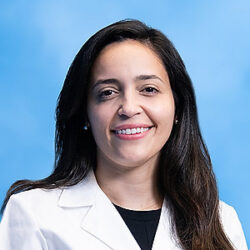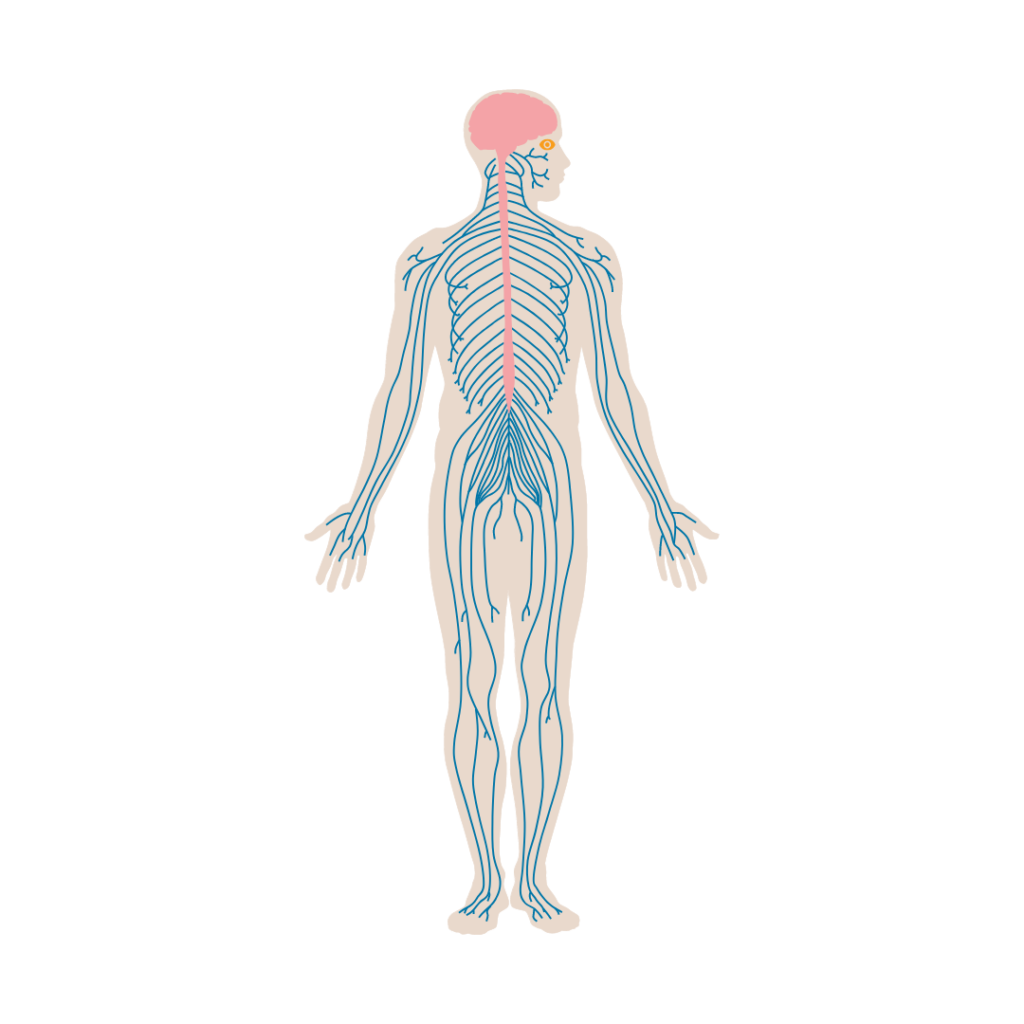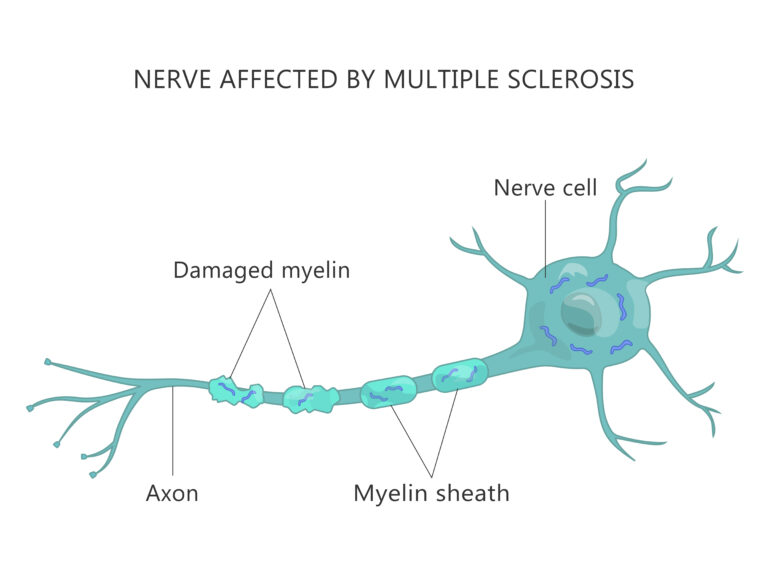Q: Do we know what causes MS?
A: We do not know the exact cause. However, there has been incredible research done to determine the potential risk factors for MS. We do know that MS is multifactorial, meaning multiple factors contribute to the development of the disease, such as:
- Age — While MS can occur or be diagnosed at any age, it is most commonly diagnosed in individuals between 20 and 40.
- Sex — Women are 2-3x more likely to be diagnosed with MS.
- Vitamin-D deficiency — Studies have shown a correlation between Vitamin-D deficiency or less sun exposure and MS, meaning White individuals are at the most risk.
- Unhealthy lifestyle — Smoking, lack of exercise, and an unbalanced diet can contribute to MS.
- Exposure to Epstein–Barr virus — The most common form of EBV is infectious mononucleosis (mono).
Q: What are the symptoms of MS and how can I determine if I have it?
A: Each patient is unique and their path to diagnosis is specific to their history, past symptoms, and environment. Of course, each patient experiences symptoms differently. Some common symptoms can include:
Unilateral Symptoms: Since MS affects specific nerves in the CNS, patients will experience unilateral symptoms meaning they will have symptoms in one arm, one leg, one eye, etc. rather than both. These can include:
- Numbness
- Weakness
- Vision loss
- Tremors
- Pain
- Muscle rigidity or spasm
- Tingling
- *Patients may have bilateral arm or leg weakness/numbness if the spinal cord is affected
Emotional and Mental Common Symptoms: We know MS affects certain parts of the brain causing white matter lesions that can affect our emotional and mental health. Some symptoms may be:
- Depression
- Mood swings
- Anxiety
- Fatigue
Other Common Physical Symptoms can include:
- Constipation
- Vertigo
- Fatigue
- Incontinence
- Neuropathy
Q: How common is MS?
A: There are two main types of MS affecting nearly 1 million diagnosed individuals in the US:
- Relapsing-Remitting MS (most common) affects 85-90% of patients. Patients will have relapses (symptoms getting worse) followed by relief (remission).
- Primary Progressive MS (less common) affects 10-15% of patients. Symptoms are steadily occurring with no relapse and no remission.
Q: Is there any treatment?
A: There is no cure at this time, but we can manage the symptoms and slow the progression of the disease, which is remarkable. Currently, there are 20 medications to treat MS symptoms, including oral, injectable, and infusions. We can use a combination of different therapies and medications to fit your needs. At Lakeland Regional Health, we can diagnose and treat MS right here in our facilities. We can tailor your treatment plan to give you the best outcomes to live a strong, healthy, happy life!
Q: Is there hope?
A: Of course! Since 1993 when the first treatment medication was developed, research for MS has created more treatments, therapies, and options for symptom management. In fact, some people have such mild symptoms that no treatment is necessary. The most important thing is to talk with your doctor thoroughly at every annual exam and let them know if you experience any abnormal physical or mental symptoms. With our treatment plans implemented early on in the diagnoses, we can treat the effects of the demyelination which will in turn slow the degeneration of the nerves. This means we can give patients their lives back. They can bike, run, walk, work, and play with lessened pain and ultimately a better prognosis!


